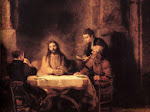
In my last blog, I spoke about enjoying enjoying our culture, as well as other cultures. However, Christianity has not just enjoyed culture, but has a rich tradition of studying culture, analyzing it, participating in it, and transforming culture as well.
In the City of God, St. Augustine discusses and analyzes the surrounding Roman culture. While critical of that culture, you can also see his love and appreciation of that culture, as well as the wealth of knowledge he had accumulated about it. He laid out a vision that would transform the culture and set the tone for Western Civilization for the next thousand years, which largely continues to this day.
For the longest time in Western Civilization, Christians were the leaders in the arts, literature, science, theater, music, as well as agriculture, manufacturing, technology, business, economics, government and law. Christians were not content to just participate in such fields, they sought to excel and transform them as they applied a creativity, freedom, and reason, which they believed flowed from being made in the image of God. They saw Christianity as applying to all of life and its many aspects rather than to only the spiritual, or only to the private life, or only to a limited part of the culture.
Besides participating and leading in the culture, they also supported not only the arts (as patrons), but they further supported the effort to lead and transform in all the aspects of culture. They founded the universities to further this effort, as well as to promote, inculcate, and disperse a broad education. Though not perfect, and at times flawed, they overall transformed Western Civilization into a success and a position of leadership in many of these areas throughout the world. They saw as their goal nothing less than to bring the entire world before the Lamb of God and thus establish the City of God, as St. Augustine wrote about, and which Van Eyck portrayed in his Ghent Altarpiece, also known as The Lamb of God. (Opened panel view below.)
 |
| Ghent Altarpiece, Jon Von Eyck |
Unfortunately, there is a trend these days for Christians to withdraw and retreat from the general culture, and instead focus on a sub-culture that is distinctly thought of as Christian. While the goal may be to protect Christians, the effect is to abandon large parts of our culture to those who hold a different perspective, which only tends to reinforce the view that those parts of our culture should be shunned. This view leads to a Christianity that is crippled and weak, shrinking and withering, in contrast to the robust and full-orbed, healthy and advancing Christian tradition of the past, which we have inherited. I hope we can regain the momentum in a full-orbed Historic Christianity that engages with our culture by not only by enjoying it, studying it, and analyzing it, but also by participating in it and transforming it.
